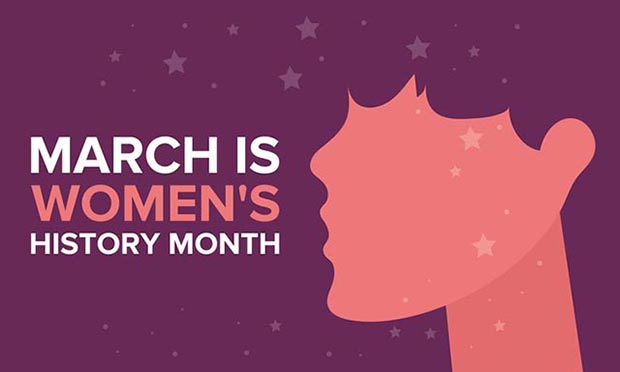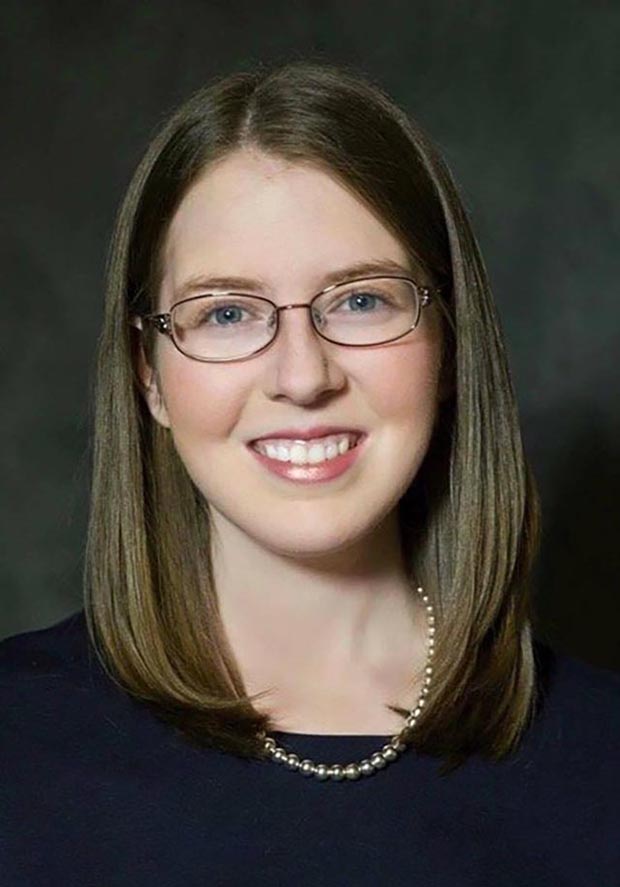
 “I wasn’t shooting for great, I was just shooting to pass. So I would have to thank Wiley for my scores.” says Meg Rodeback. But great is what she got. Meg received award-winning test scores, receiving the top score on the CMA exam in her class at Brigham Young University in Utah. But not before life intervened: She had intended to take the CMA exam right out of school, but a kidney transplant suddenly become urgent, and the health emergency threw her off schedule. “I wasn’t expecting it, and it wasn’t ideal,” says Meg, now in the middle of a two-year accounting rotation with her company. “But everything turned out pretty well, I think!” We would agree. We also felt like March, Women’s History Month is a great time to recognize Meg’s incredible accomplishment.
“I wasn’t shooting for great, I was just shooting to pass. So I would have to thank Wiley for my scores.” says Meg Rodeback. But great is what she got. Meg received award-winning test scores, receiving the top score on the CMA exam in her class at Brigham Young University in Utah. But not before life intervened: She had intended to take the CMA exam right out of school, but a kidney transplant suddenly become urgent, and the health emergency threw her off schedule. “I wasn’t expecting it, and it wasn’t ideal,” says Meg, now in the middle of a two-year accounting rotation with her company. “But everything turned out pretty well, I think!” We would agree. We also felt like March, Women’s History Month is a great time to recognize Meg’s incredible accomplishment.
Q: What were your biggest challenges when preparing for the exam?
It was really difficult to keep so many different topics in my mind at the same time. Flashcards were really helpful with that, to drill rules and concepts until they were all close to the surface when I needed them.
Q: Time management is often a big challenge for candidates. How did you manage your time?
I knew that I wouldn’t be able to really knuckle down until I had a deadline, so I scheduled my test before I started studying. I also found that if I tried to sit down and study for three hours, it was hard to do. But if I tried to just sit down and do something, it was easy to build momentum and keep going.
Q: Can you walk me through your study process?
I started with the video lectures and then moved to the assessment questions. If that didn’t go well, I did practice questions until I figured it out. I went through all the topics in order of the review course, and then I spent the week before the test reviewing tough topics and doing flashcards.
Q: Which techniques do you feel contributed the most to your passing score?
Flashcards are really, really helpful for me. I also took notes while I was watching the video lectures. I didn’t really refer back to the notes very much, but just taking them helped me retain the information better. Reverse-engineering practice questions is also really helpful for figuring out a tricky process.
Q: Did you research other test prep providers? Why did you choose Wiley?
I looked into one other option and found that Wiley was more cost-effective. There was also a great student discount that I took advantage of.
Q: What have you encountered with your CMA designation rather than a CPA?
I’m not actually certified yet, but looking forward to it soon! I’ve found that as I’ve been having conversations with people who do the types of accounting I’m interested in, I’m learning that they’re all happy to see the “CMA” letters on my resume. It also tends to lead to a good conversation about why I chose to brand myself with the CMA rather than the typical CPA.
Q: Given your recent accomplishments, what are your future plans?
I’m not sure yet! I’m currently in a two-year rotation program, learning more about what I like to do and where my skills are. Right now I’m in a rotation program at my company where I spend a little time in several departments learning how things work in each. So, I guess there will be a decision on the horizon about what position I’ll take after the rotation program. But for the moment you could say I’m still exploring.
Meg’s Top 5 Tips to Doing Well on the CMA Exam
1. SET DEADLINES FOR YOURSELF
If you want to set yourself up for success on the exams, it’s imperative to give yourself a deadline. I would recommend scheduling your test in such a way so you can’t possibly put off studying.
2. SET ATTAINABLE GOALS
Don’t set ridiculous study goals. This puts a lot of unnecessary pressure on you, and it’s hard to perform under that kind of pressure. Build time into your schedule for work or school to get busy. Crazy things will happen whether you plan time for them or not! Also, try to take a day off once in a while so you can really be productive.
3. PRACTICE QUESTIONS MAKE PERFECT
Wiley materials have lots of practice questions, and they have them for a reason. I strongly recommend at least a few practice questions for every section and don’t be afraid to keep working them out until you really understand.
4. WORK HARD
Obviously, it’s important to work hard, but you have to pace yourself. Once you have a topic down, move quickly on to the next topic. Sometimes that means not watching every last video or doing every practice question. Put all of your quality time into the topics that give you the most trouble.
5. WORK SMART
I would recommend going through all the topics once first, trying to retain as much as possible. Then I would go back through it again to reinforce the topics that were difficult or the ones that gave you the most trouble.
Meg’s Top 5 Reasons to Pursue a Carrer in Accounting
1. Stability
Accounting is a great field to work in because there’s stability in the profession. Every business needs someone to handle the money internally, and every public company needs to be audited. Accounting as a profession is here to stay.
2. Adaptable
Accounting is adaptable. A job as an accountant in the entertainment industry is very different from one in the automobile industry. The same rules and skills can be applied in so many different ways that you can have a variety of interesting jobs over the course of a career without ever leaving accounting.
3. High Visibility
Accounting touches all pieces of business. My business degree included introductory classes in HR, Finance, Supply Chain, Economics, and Strategy, and I use principles I learned from each class in doing my work and in understanding how the accounting work I do fits into the business around me.
4. People & Numbers
Accounting is a balance of working with people and working with numbers. At the end of the day, getting the right numbers to the right people at the right time is your goal as an accountant. However, there are so many people involved in that process that you get to spend plenty of time working with people and not just with spreadsheets.
5. Transferable Skills
As an accountant, you use skills that transfer, both to other parts of business and to life in general. Budgeting, attention to detail, time management, and many other skills are valuable in almost any context, and the accounting perspective of understanding what happened in the past and how that might affect the future is a helpful approach for any problem.
Meg decided that the Wiley CMA gave her the best chance to pass the CMA exam, and she was right. But see for yourself! Register now for a free 14-day trial of Wiley’s CMA Exam Review Course.

